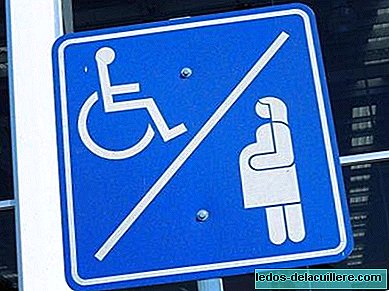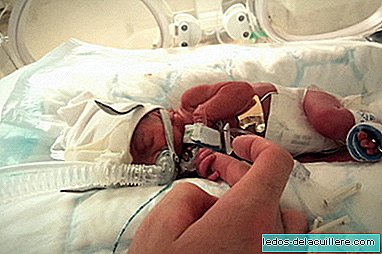
Are pregnant women with "temporary reduced mobility"? This weekend I read a story that has made me reflect on a topic that is currently in the Basque Country. Pregnant women will have preference, together with the disabled, to park in the reserved places of health centers and large commercial areas.
This is a pilot experience that will be launched in Vitoria from April 1, with the first 12 public parking spaces shared between disabled people and pregnant women.
But this pioneering measure in the Basque Country has provoked criticism from the group of disabled people, which recalls that these areas "are not free or amiable." These places, remember, are obtained exclusively if you have 7 points of the Mobility Scale processed by the Diputación in Álava, "and there is a large percentage of the population that have 4, 5 and 6 points."
These people, who have a considerable mobility problem, however do not have the right to reserved space. In this way, the disabled ask themselves, why those citizens with serious mobility problems cannot park in these places and pregnant women can.
Moreover, they ask why they cannot park in those areas "who has a temporary injury or surgery, or even an obese population."
For now, pregnant women who wish to apply for a parking permit and to obtain the circulation cards to leave the car in the indicated places they must present in the municipal offices their identity and driving documents, their pregnancy card and a certificate of standard that demonstrates that they live in Vitoria.
The special pass expires, so that each pregnant woman can use it until only one month after the expected date for delivery. The Councilor for Citizen Security, says that with this initiative they approach the most advanced countries in the protection of the rights of families.
The plaque that will identify each square is a blue sign in which a wheelchair and a pregnant woman appear. If the experience is positive, it will be extended to more places in the capital of Alava.
The problem is that there are few places
Personally, I think that if a person, pregnant or not, without disability, is not able to walk a few meters to reach their destination, they probably neither be in the best conditions to drive. I did not see myself in this situation during my pregnancies, although in the postpartum period, but on those occasions I did not drive, and they left me at the doors of the places where we were going to walk as little as possible.
On the other hand, if we put ourselves in the case of a pregnant woman, assuming she has been recommended rest, shouldn't she also stop driving, even when she doesn't have to walk at her destination?
Although, and here I think there is the most important point, there is also the question of being able to get out of the car. Sometimes the parking spaces are so narrow that if a person of average size already has to do contortion to get out of the vehicle, pregnant women have it impossible. In a wide square, where you can open the door at all, no problem.
So, it would not be to say that pregnant women are people of temporary reduced mobility but of "transitory wide volume", to put it in some way, although then you should also think of obese people, and more because they don't disappear in a few months.
Anyway, in this sense, special places for pregnant women are needed, in fact, in some cities there is this type of reserved parking and is an advance in the consideration of the special situation during pregnancy.
What maybe should be avoided is that they were shared parking spaces, because the group of disabled people also do not have facilities to move around our cities; on the contrary, more own places would be necessary.
In short, instead of "taking better advantage of existing parking spaces," as those responsible for this initiative declare, it would be fairer for everyone. create new places for this purpose and that the disabled and pregnant women had their own car parks.












